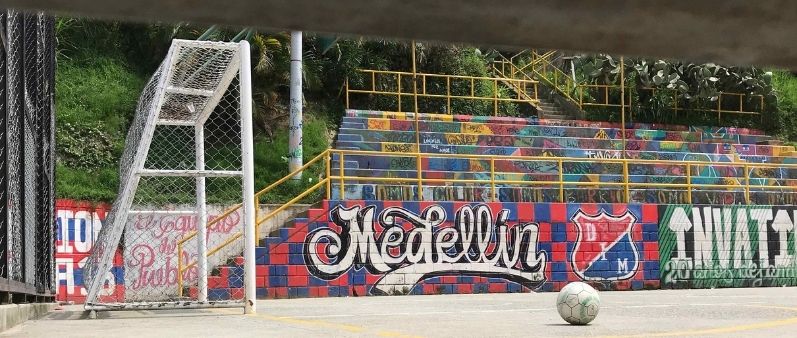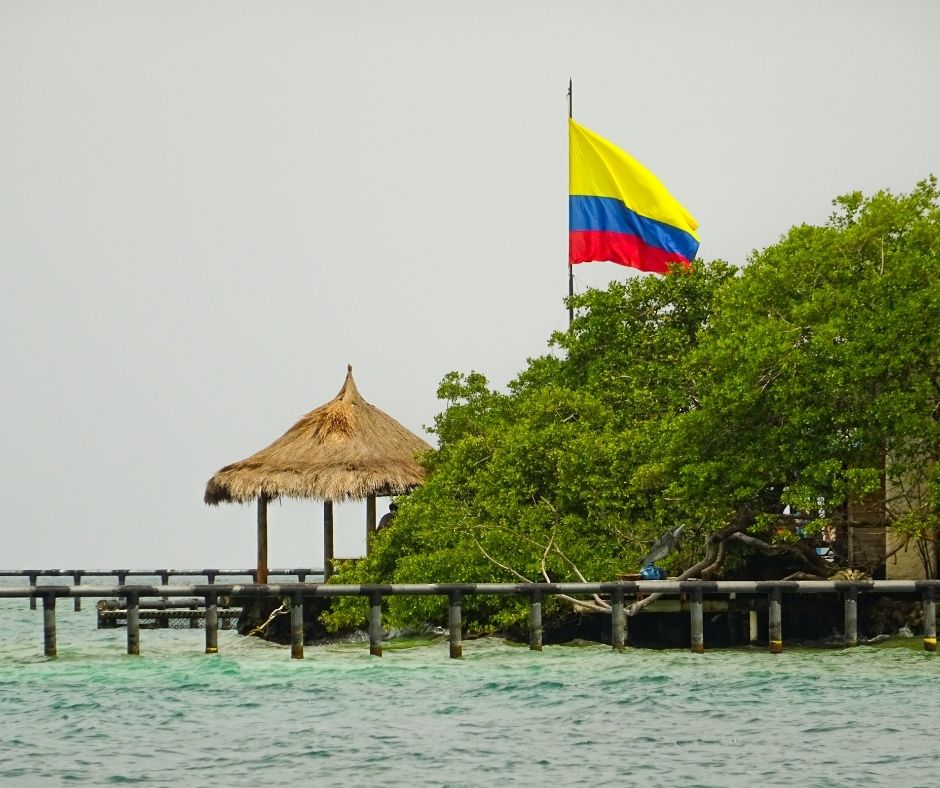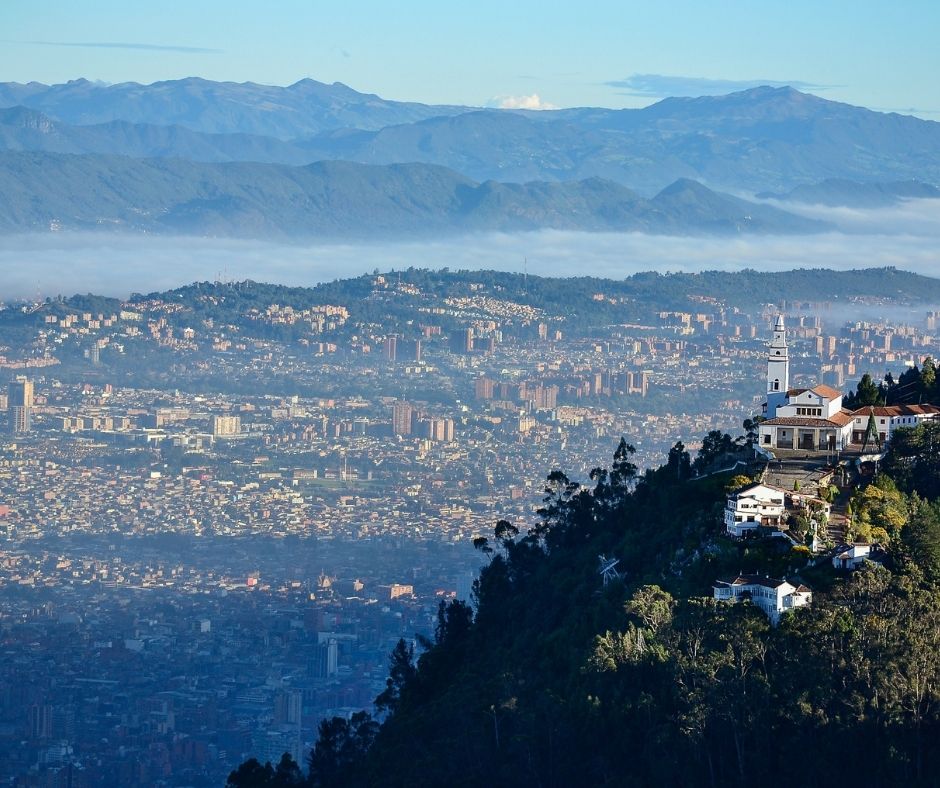
Colombian Slang Terms by Region: From Greetings to Insults to Love!
“¡Quiubo ‘mano!”
“Qué hacés, pues?”
“Es que eso es una chimba”
What do these Colombian slang words mean? Where do they come from? How can visitors use them?
From Colombian greetings to Colombian sayings about love (and even friendly insults), the country has gained popularity for its unique form of slang words, phrases, and expressions, which can be as colorful and diverse as the very people who call this beautiful country their home!
Sadly, many of these super common words are never taught in classrooms, leaving herds of backpackers feeling shocked and unprepared when encountering them for the first time on a trip down to Medellín or Cali. That’s why we’ve created this guide for you
Spanish-learners beware! Although each slang term may originate from a certain region of Colombia, they may very well be heard throughout the entire country because of migration and an increase in the use of social media.
By dividing these terms into regions, we hope to better guide Spanish learners through the intricate waters of immersive language learning!
Colombian Slang Words from the Pacific Coast
These slang words come from the western coast of the country – the Pacific Ocean– which includes the cities of Cali, Popayán, Pasto, and Quibdó.

1. Quiubo
This is a shortened version of ¿Qué hubo? and is used in the same way that anglophones use ‘What’s up?’ or ‘Hi, how are you?’ Even though it originates in the Pacific coast region, travelers and students should expect to hear this word throughout the entire country.
Example:
¿Quiubo, qué haces?
“Hey, what’s up?”
2. Foquiar
It may sound like a bad word, but it is not–its real meaning refers to the deep sleep that only comes due to extreme exhaustion. Think, for example, of the type of near-coma exhaustion you feel after a 10-hour shift at work. That is when one would use the verb foquiar.
Wanna sound native? Try leaving out the “d” in adjectives, especially when talking with native speakers from the Caribbean islands and coast. Instead of foquiado, the word would be pronounced foquiao.
Example:
Ese hombre llegó de trabajar y quedó foquiao
“That man got back from work and passed out.”
Colombian Slang Words from the Caribbean Coast
These slang words come from the northern coast of the country, in the Caribbean, which is known for the cities Barranquilla, Cartagena de Indias, Santa Marta, Riohacha, and Valledupar.

3 & 4. Billullo or Barras
Both of these refer to money. ‘Barras’ mostly refers to the price of things, and can be used in place of pesos or dollars. ‘Billullo’ refers to someone’s general wealth, and is almost always used to say that the person in question has a lot of money in their bank account.
Examples:
Este café cuesta 1,500 barras.
“This coffee costs 1,500 pesos.”
Ese tipo tiene bastante billullo para tener ese carro.
“This man must have a lot of money to have that car.”
5. Liso
If looked up in the dictionary, liso refers to something that is smooth, flat, and even. But if said by a costeño – a Colombian from the Caribbean coast – it could refer to a man who is arrogant and presumptuous, especially towards women.
Example:
No me gusta bailar con Carlos porque es muy liso.
“I don’t like dancing with Carlos because he’s arrogant.”
Colombian Slang Words from the Andes Part 1: The Bogotá Cachacos
The Andes Mountains take up the central part of the country. They are the most populated geographical region and are home to the two most well-known cities in Colombia: Bogotá and Medellín. The following are the key slang words from Bogotá and the general capital district.

6. Cachaco
This refers to those born and raised in the capital, but could also be used to describe someone who is elegantly dressed. Although it is oftentimes used synonymously with the word rolo, cachacos and rolos are not the same: cachacos are those who are born in Bogotá and whose parents are also from Bogotá, whereas rolos are those who are born in Bogotá but whose parents come from elsewhere in the country.
Example:
La elegancia es característica de un cachaco de verdad.
“Elegance is characteristic of a true cachaco.”
7 & 8. Chusca and Chirriado
Both of these adjectives are used to express the same feeling, that a female friend is pretty (chusca) or a male friend is handsome (chirriado).
This differs from cachaco and cachaca because chusca and chirriado only refer to someone’s physical beauty and physique, rather than the way someone is dressed or how they present themselves.
Example:
Ellos hacen una muy linda pareja – ella es muy chusca y él chirriado.
“They make a lovely couple–she is very pretty and he is handsome.”
Colombian Slang Words from the Andes Part 2: The Medellín Paisas
As stated before, the Andes Mountains are the most populated region, but the Andes include not just Bogotá. It is also home to Antioquia, the political department of Medellín, Armenia, Manizales, and Pereira.

9. Desgualetado
This slang word is used to describe a person who is unkempt or perhaps badly dressed. They may be hunched over and scruffy, and may not radiate the usual Colombian warmth typical to the Antioquia region.
Example:
Los adolescentes rebeldes se conocen por verse desgualetados.
“Rebellious teenagers are known for looking unkempt.”
10. Taco
No, not the one you eat in Mexico. Taco is used by paisas to describe such heavy traffic that the road is blocked and no one can pass.
Example:
El taco en el centro de la ciudad me impidió llegar a tiempo al trabajo.”
“The traffic jam in the center of the city made it difficult for me to arrive at work on time.”
Colombian Slang Words in Santander and Norte de Santander
The regions of Santander and Norte de Santander border Venezuela, the neighboring country to the east, and include the cities of Bucaramanga and Cúcuta.

11 & 12. Pingo and Toche
These slang words are used to express a certain relationship between friends and acquaintances and can be used to tease one another in a sense of camaraderie. In the same way that two American friends would greet each other like, “What’s up, bro?” a traveler throughout the region can expect to hear “¿Qué pasa, pingo?” on the streets of Bucaramanga.
Example:
¡Hola, toche! Regálame un vaso de agua.
“What’s up, bro? Let me have a glass of water.”
13. Tantico/a
In a literal sense, tantico means ‘just a little bit’ or ‘little quantity.’ It’s not used to describe abstract ideas, but rather a physical lack of something. If a woman wearing makeup looks a little pale, you can expect to hear that they are missing “un tantico de rubor,” or just a little bit of blush.
Example:
A los huevos les falta tantica sal.
“The eggs are missing a little bit of salt.”
Want to Learn Un Tantico Más Spanish?
Colombia’s topography is just about as diverse as its slang (in part because of the geographical separation of different cities). Learning Spanish slang is part of what makes the language so fascinating.
The good news? There is a standardized form of Latin American Spanish (and at times Castilian Spanish) that is taught in every classroom of Latin America, from northern Mexico down to southern Argentina. Even though there are notable differences between Latin American Spanish and Castilian Spanish, you can communicate with locals using either dialect, no matter wherever you travel.
The Spanish language is at your fingertips with the Pimsleur language learning app. Test out the app for free!
No Comments for "Colombian Slang Terms by Region: From Greetings to Insults to Love!"